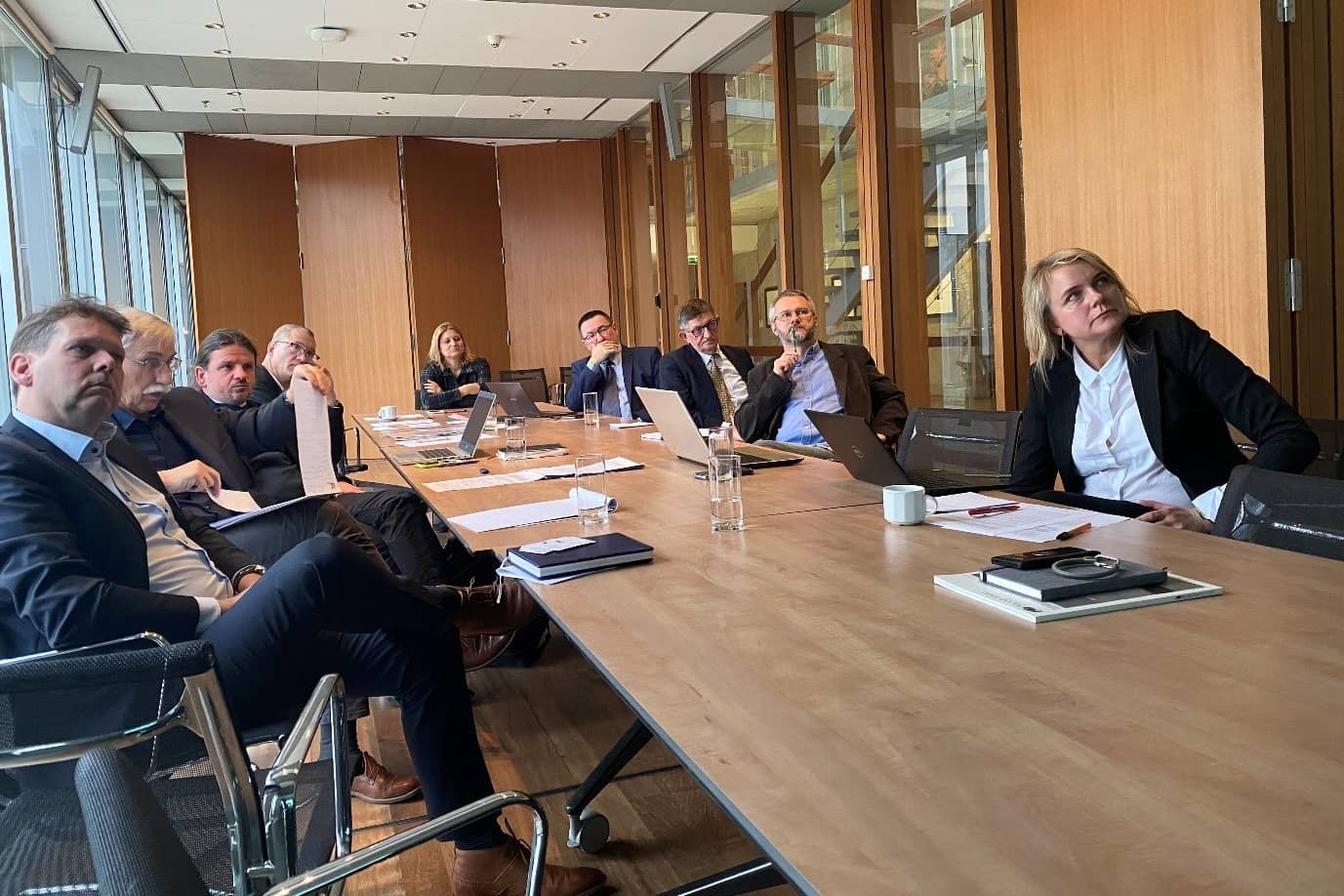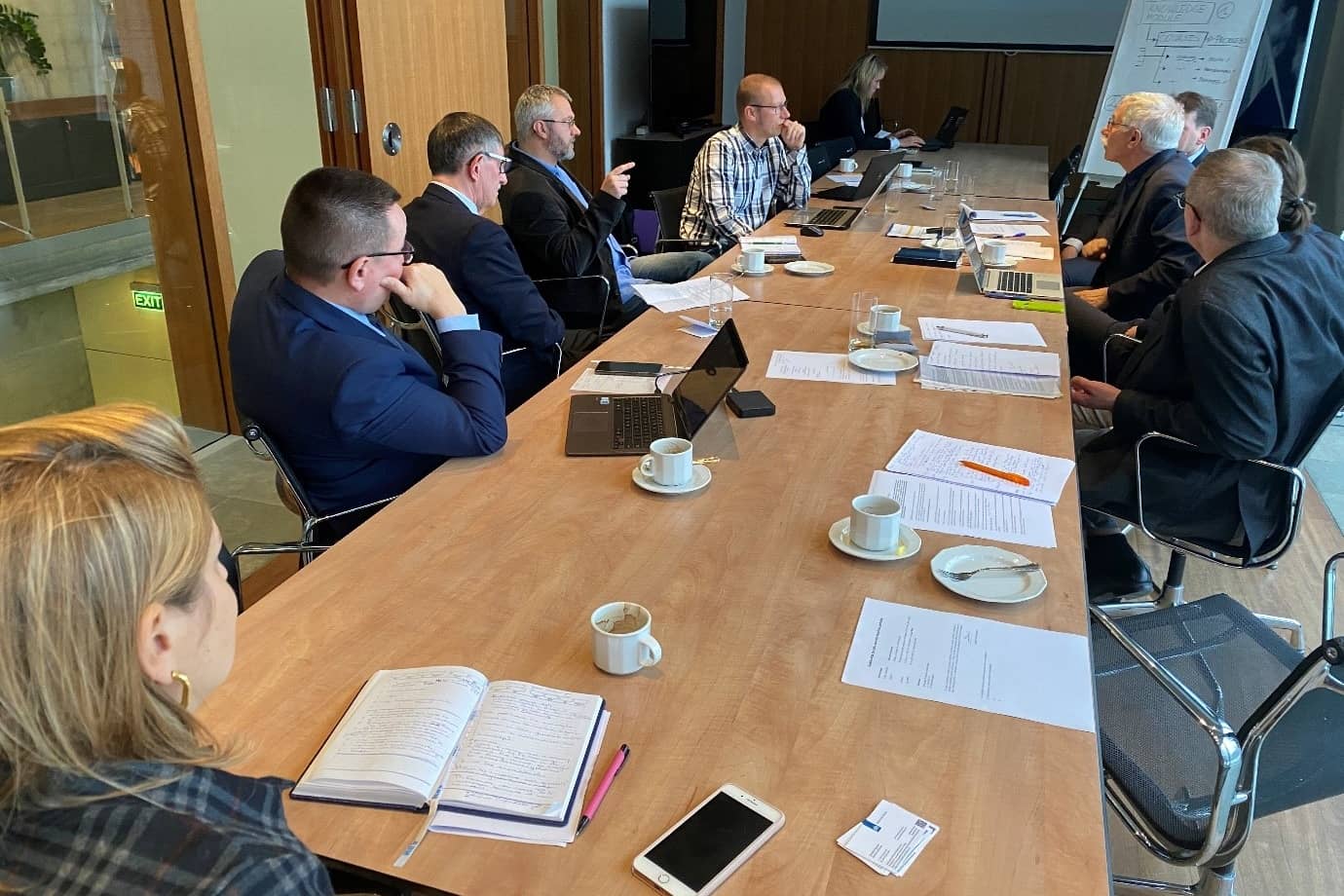The Embassy of the Netherlands has launched a 1-year project with the aim to improve the soil quality in Poland by informing stakeholders on the usage and implementation of sustainable agricultural technologies including use of organic fertilizers and soil improvers and precision farming technologies. It is the ambition that the 1-year project will be followed by a 3-year public private partnership between the Dutch government, Dutch knowledge institutions and companies who could share knowledge and innovation with the Polish stakeholders.
Beeld: © A.Galica
Scientists panel on knowledge module development
One of the foreseen outcomes of the pre-PPS on soil improvement is the development of a knowledge module for Polish stakeholders on how to use organic fertilizers properly in order to improve organic matter. The scientists panel was organized in order to identify Polish experts willing to cooperate with the Dutch side to achieve this goal.
On 29 January 2020 the meeting was organized between the Dutch experts on soil improvement and the development of knowledge modules (e-learning) on soil (Agriholland and NCM) and the representatives of Polish scientific institutions operating in the field of soil quality research (Warminsko-Mazurski University in Olsztyn, Poznan University of Life Sciences, University of Agriculture in Krakow, Institute of Soil Science and Plant Cultivation in Pulawy).
The participants were greeted by Carolien Spaans, Agricultural Counselor in the Embassy of the Kingdom of the Netherlands in Warsaw and introduced to the topic of the meeting by Sylwia Mikołajczak, Polish project coordinator. Harrie Kootstra from Agriholland presented his experience on the previous projects of development of knowledge modules focused on soil and organic fertilizers. Jan Roefs from Dutch Centre for Manure Valorization discussed the soil improvements methods used in the Netherlands, focusing on organic and green fertilizers.
Beeld: © A. Galica
Prof. Witold Grzebisz from Poznan University of Life Sciences gave a short presentation on soil quality in Poland, indicating that Polish soils are characterized by the naturally low content of mineral colloids and therefore they are in need to increase the quantity of organic matter in order to (1) increase water holding capacity, (2) increase cation exchange capacity (K+Ca+Mg) and (3) decrease year-to-year yield variability. He also indicated that information on use of organic fertilizers for soil improvement should be directed to farmers and students of middle level of education.
Beeld: © A. Galica
Prof. Andrzej Klasa from Warminsko-Mazurski University in Olsztyn pointed out that 90% of production of cereal in Poland is done on poor quality soils that could benefit from the increase of organic matter content, especially that the reduction of it has been observed since 1979s. He also noticed that one of the challenges is to persuade farmers to implement innovative soil improvement techniques, that is why he welcomed the Dutch initiative in this regard.
All Polish participants have a lot of experience in research on soil quality and its improvement. They agree that the increase of soil organic matter with the use of organic fertilizers is necessary and see the need to disseminate this knowledge further, however they look for the methods to reach farmers but also the young generation. That is why they were very much interested in creating e-learning module that could be used widely and showed the willingness to participate in the development of such a knowledge module. They also suggested that once the knowledge module is created, it could be promoted via popular Polish agri portals.
The lively and engaging discussion between the participants led towards creation of a roadmap for the next steps to be followed in order to create the knowledge module suited to Polish needs. The participants agreed to be the members of the editorial group contributing to the content of the e-learning course. They noticed that the focus should be on farmers and future university students. They also brainstormed the topics to be included in the knowledge module.
Beeld: © A. Galica
What is important, the editorial group proposed the timeline of the future actions. The work on the knowledge module shall include the initial proposal, followed by the feedback on the intended content of the e-learning, then necessary corrections, film shooting and second review. The knowledge module shall be completed by end of May 2020, since in May-September it is planned to organize 3-4 testing sessions with the use of the tool.
LAN-WAR: own report- AG

